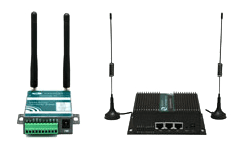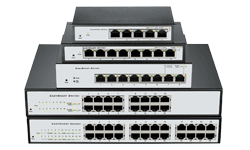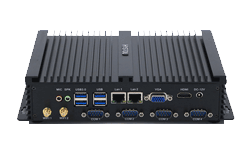What is the difference between industrial 4G routers and ordinar
What is the difference between industrial 4G routers and ordinary 4G routers?
Industrial 4G router is a high-speed industrial Internet of Things router, which is fully compatible with 4G / 3.5G / 3G / 2.5G networks. It uses public LTE networks to provide users with wireless long-distance data transmission functions.
The Industrial 4G Router is an edge computing gateway. The Ilins Technology Industrial 4G Router Gateway can be secure, stable, and transmit data to the cloud platform. It is widely used in industries such as finance, transportation, monitoring, environmental protection, postal service, meteorology, mobile Internet of Things, and telecommunication Internet of Things.
Industrial 4G routers are commonly used in public areas such as vending machines, numbering machines, lottery machines, coupon printers, advertising machines, and smart express boxes, while ordinary 4G routers are more used in civilian homes, in working environments and network signals There is no higher demand. The 4G industrial network wireless router requires more stability and higher cost, and needs to be compatible with multiple network standards to facilitate automatic switching in unstable signals or special working areas.
A simple comparison of the application environment can find that the difference between the 4G industrial network wireless router and the ordinary 4G router is very obvious. There are four major contrastive differences.
The difference between 4G industrial routers and ordinary 4G routers: product components
The various components used by E-Lins Industrial 4G routers are industrial-grade devices. From the main control chip to the PCB board to the housing, any component does not meet the industrial-grade requirements, and the product cannot be called Industrial grade. Industrial 4G routers can adapt to the harsh environment of various industrial control industries, and have good high and low temperature resistance characteristics, which is also derived from the industrial requirements of the product.
The difference between industrial 4G network routers and ordinary 4G routers: operating temperature
The requirements of E-Lins Industrial 4G router for operating temperature are also the requirements for components. 4G industrial network wireless routers usually work in the temperature range of -35 to 75 degrees, while civilian ordinary 4G routers work in the range of -10 degrees to 60 degrees, usually indoor temperature can be met, so the environment can not be applied in harsh Industrial control environment. Even ordinary outdoor public areas cannot be satisfied in winter.
The difference between industrial 4G routers and ordinary 4G routers: product features
E-Lins Industrial 4G router is applied to the industrial control industry, and the required functions are more powerful. Not only need high bandwidth and fast response, but also need port mapping, VPN, watchdog, stronger firewall and other protection, static protection and other functions, and civilian ordinary 4G routers only need to provide Internet access.
The difference between industrial 4G wireless routers and ordinary 4G routers: product stability
The high stability requirements of industrial 4G wireless routers are difficult for ordinary 4G routers to work, and they must work without failure for a long time, and can automatically recover when a network failure occurs. However, ordinary civilian 4G routers cannot reach long-term working conditions. If it encounters rain or snow, ordinary 4G routers that have been continuously resting for a long time are prone to network disconnection. Usually running for a period of time is also more prone to failure.
Written by Owen

 Networking
Networking EMBEDDED SYSTEMS
EMBEDDED SYSTEMS Switches
Switches Wireless Solutions
Wireless Solutions Industrial Computer
Industrial Computer Cloud Services
Cloud Services



